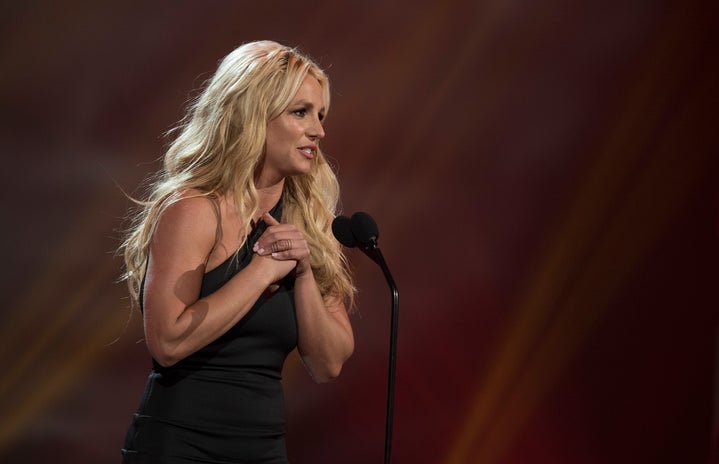On June 23, 2021, Britney Spears asked the Los Angeles Superior Court to end her 13-year conservatorship. In an emotional 24-minute statement, Spears shared that the conservatorship has stripped her of autonomy over her career, financial assets, private life, and medical choices. In a series of heartbreaking confessions, the singer stated that she wants to get married and have another child, but her conservators — including her father, James Parnell Spears, who’s a co-conservator alongside the financial institution Bessemer Trust — will not allow her to remove her IUD. “I have an IUD inside me so I won’t get pregnant, but this so-called team won’t let me go to the doctor to take it out,” Spears stated.
In 2008, her father took over as his daughter’s conservator, and even after years of the pop star expressing that she doesn’t want him in that position, he remains her co-conservator. For 13 years, he designated the amount of time she spent with her children, boyfriend, as well as her rehearsal and touring schedule, from which he profits. At the hearing, Spears stated that she’s traumatized, and would like to sue her family, specifically her father, whom she claims is not interested in her well being, health, or happiness. The shocking revelation that the singer is not allowed to make her own reproductive decisions is surely inhumane — but does it qualify as assault?
According to The American College of Obstetricians and Gynecologists, reproductive coercion can be defined as a collection of behaviors that interfere with decision-making related to reproductive health, and is a type of abuse. Reproductive coercion takes place when someone takes control over the decisions of another person’s reproductive choices. The term can also be applied to those who aren’t allowed access to birth-control options, as well as those who aren’t allowed to remove birth-control devices. In Spears’ specific situation, it’s defined by the act of depriving someone of their reproductive decisions and freedoms.
However, Civil Rights Attorney Hannah Lipow tells Her Campus that Spears’ situation doesn’t fall under the definition of assault given the extent of the conservatorship, despite being deprived of her right to bodily autonomy. “I personally feel this almost crosses a line to battery which involves a lack of consent for an act of causing physical harm — with bodily involvement,” she says. “It’s a really gray area, unfortunately.”
Lipow explains that, in this specific case, the law likely doesn’t go far enough to protect Spears because of the jurisdiction of the conservatorship. But should Britney Spears have the right to make her own medical decisions? “My bleeding heart says yes, of course,” Lipow says. “The law, while flawed, was made to protect and says no.”
The restrictions of the law and the authority of a conservatorship is a reality that those in the disabled community know all too well. But despite the limitations, Spears’ fandom continues to demand that the singer be liberated from her conservators, on the grounds of civil liberty and inhumanity. What stands in their way? Spears will need to convince a judge that she’s capable of managing her assets, and while experts remain hopeful that the singer will be able to loosen a few of her restrictions, they believe it is unlikely that she will be granted her full freedom from her conservatorship. But regardless of whether or not the law defines Spears’s lack of reproductive autonomy as assault or coercion, the singer is being deprived of her freedoms. If Spears is able to choreograph, perform, and lead a touring team, why shouldn’t she be given control over her bodily autonomy?
Experts:
Hannah Lipow, Civil Rights Attorney


